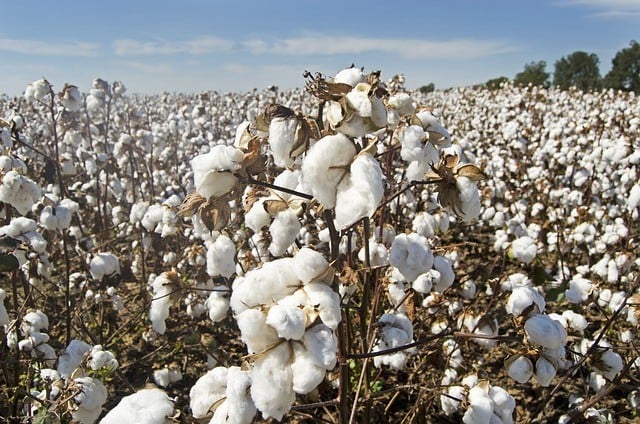There is no doubt that cotton is one of the best types of raw materials used in the textile industries, if not the best at all! Many countries around the world lead the market in producing and ginning high-quality cotton, but Egyptian cotton remains at the forefront without any competitor.
Egypt has known cotton cultivation since the ancient era of the Pharaohs. The Egyptian cotton tree belongs to the marshmallow family, which includes more than 2,300 species, and is grown today throughout the region and even in many countries such as China, Sudan, India, Australia, Peru and Uzbekistan, constituting 5% of global cotton production. .
Egyptian cotton gained wide fame in the nineteenth century when long cotton fibers were manufactured from it and the unique properties that characterize cotton cloth emerged. Its use was not limited only to the textile industries, but it was also used in the manufacture of home furniture, many items such as hats, wax threads, and table covers. Cotton was also used in the manufacture of cotton ginning and pressing machines, in rice mills and processing factories, indigo processing for dyeing, oil presses, and factories for manufacturing chemical materials.
This great fame was not without reason, as the exceptional characteristics that Egyptian cotton enjoys alone explain the great demand for it and its export to many countries of the world. Among these characteristics we mention:
100% pure Egyptian cotton is elastic and extremely soft, making it suitable for use in making high-quality textiles.
Egyptian cotton is known to be long-staple, meaning it grows for long periods compared to other types due to the nature of the climate in Egypt.
During the harvesting process, Egyptian cotton is picked manually, which preserves the integrity of the fibers and protects them from pressure and damage.
Egyptian cotton fibers are twice as long as other types of cotton, which makes them softer and higher quality and reduces fiber pilling.
Although Egyptian cotton fibers are long fibers, they are characterized by strong durability and are suitable for various types of industries.
Being a pure natural fibre, it is excellent in absorbing liquids as well as providing good breathability
This type of cotton is rare, due to the difficult conditions of its cultivation, so it is considered one of the most expensive and finest types.
However, today it is possible to grow Egyptian cotton in countries with different climates and soils, thanks to modern agricultural techniques, and it is also widely exported outside the country. However, the Egyptian cotton industry has recently faced many challenges, as the quality of long-staple Egyptian cotton has gradually been replaced by other types of lower quality, to save production costs, in addition to the weak capabilities of manufacturing textiles from Egyptian cotton and the losses faced by public sector companies that manufacture Egyptian cotton textiles.

